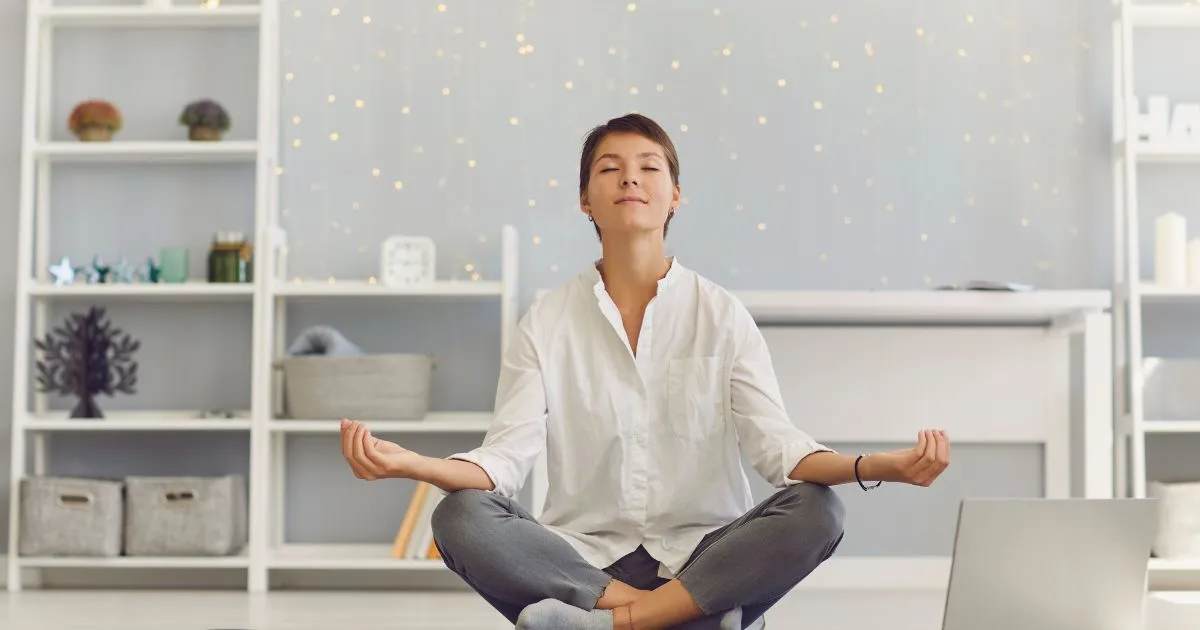How Does Exercise Help the Elderly’s Mental Wellbeing?
Reclaiming Joy and Clarity in Your Golden Years
Picture this: you wake up feeling lighter. Not just in body, but in spirit. Your thoughts are clearer, your worries fewer, and there’s a renewed sense of purpose. If you’re navigating the challenges that often accompany aging—like stress, low mood, or forgetfulness—you may feel like these experiences are simply part of getting older. But here’s a powerful truth: incorporating movement into your daily life can help transform your mental landscape.
Table of Contents
Exercise isn’t just about muscles or mobility. It’s a gateway to a healthier, sharper, and more joyful mind. And no, it doesn’t mean you have to run marathons. Even gentle, regular movement can make a world of difference. Let’s explore how you can use exercise to reclaim your mental wellbeing, one step at a time.
The Link Between Physical Activity and Mental Health in Seniors
What Happens to the Aging Brain and Mood?
As the years pass, your brain naturally undergoes changes. You might notice a slower recall, reduced sharpness, or mood fluctuations. These are common and often intensified by factors like loneliness, reduced physical activity, or chronic health conditions.
When you stop moving, both your body and mind slow down. Physical inactivity contributes to feelings of isolation and depression, while increasing the risk of cognitive decline. But here’s the good news: movement reactivates the parts of your brain that keep you balanced emotionally and mentally.
Why Exercise Is a Game-Changer
Exercise helps your brain in several ways:
- Boosts blood flow to areas responsible for memory and learning.
- Stimulates endorphins and other feel-good chemicals like serotonin and dopamine.
- Encourages neuroplasticity, which helps your brain adapt and stay sharp.
- Reduces inflammation, a known factor in depression and cognitive diseases.
Research from the National Institute on Aging and the CDC strongly supports the connection between movement and improved mental health outcomes in older adults.
How Exercise Reduces Stress and Anxiety in Older Adults
Physical Activity as a Natural Stress Reliever
You’ve likely felt it: the tension in your shoulders after a tough day, the mental fog from a restless night. Regular physical activity helps you release that built-up stress.
Here’s how:
- Reduces cortisol, your body’s primary stress hormone
- Improves sleep quality
- Encourages rhythmic breathing and mindfulness
- Enhances your ability to cope with emotional challenges
Best Stress-Reducing Exercises for Seniors
You don’t need high-intensity workouts. These calming activities are excellent for reducing anxiety:
- Walking in a park or around your neighborhood
- Tai chi, a meditative form of movement
- Water aerobics, especially soothing for joints
- Gentle yoga, for stretching and breathwork
Sample Weekly Stress-Relief Routine for Seniors
| Day | Activity | Duration | Intensity |
|---|---|---|---|
| Monday | Gentle Yoga | 30 mins | Low |
| Tuesday | Brisk Walk in Park | 40 mins | Moderate |
| Wednesday | Tai Chi | 30 mins | Low |
| Thursday | Water Aerobics | 45 mins | Moderate |
| Friday | Meditation + Stretch | 20 mins | Low |
Exercise as a Mood Booster: The Science Behind the Smile
Chemical Changes in the Brain
Feeling down occasionally is normal, but ongoing sadness or lack of motivation can be a signal your brain chemistry is out of balance. Exercise can act as a natural antidepressant:
- Endorphins are released, elevating your mood
- Serotonin and dopamine levels are regulated
- Energy levels increase, reducing fatigue and apathy
Emotional and Social Benefits
Beyond chemistry, physical movement can have emotional perks:
- Boosts your self-confidence
- Decreases loneliness through shared activities
- Creates structure, which can ease depressive symptoms
Group Exercise Ideas That Promote Connection
You might enjoy:
- Senior dance classes
- Mall walking groups
- Group yoga sessions at your local community center
These not only improve fitness but also foster friendship and purpose.
Cognitive Benefits of Exercise for the Elderly
Slowing Cognitive Decline
Cognitive decline doesn’t have to be inevitable. In fact, studies from Harvard show that walking just three times a week can significantly reduce the risk of Alzheimer’s and other forms of dementia.
Exercise benefits your brain by:
- Improving hippocampal function (the area linked to memory)
- Stimulating growth of new brain cells
- Enhancing focus, reaction time, and recall
Exercises that Strengthen Brain Health
Some movements are particularly beneficial for cognitive engagement:
- Dance routines, which require coordination and memory
- Strength training, paired with mental tasks (like counting sets)
- Dual-task activities, such as walking while solving puzzles
Brain-Boosting Circuit Workout
| Exercise | Reps/Sets | Cognitive Focus |
| Marching in Place + Count Backwards | 2×1 min sets | Memory/Focus |
| Chair Squats + Name 3 Words | 3 sets of 10 | Verbal recall |
| Step Touch + Alphabet Backward | 2×1 min sets | Coordination/Memory |
Getting Started: Safe Exercise Tips for Older Adults
Tips Before You Begin
Before diving in:
- Consult your doctor, especially if you have chronic conditions
- Choose the right shoes and attire for comfort and support
- Start slow, then gradually increase your intensity
How to Stay Consistent
Staying motivated is half the battle. Here’s how to make exercise a lasting habit:
- Set small, achievable goals
- Use a journal to track progress
- Invite a friend, family member, or caregiver to join you
- Reward yourself for milestones
Real Stories: How Exercise Changed My Life After 65
You’re not alone on this journey. Meet others who’ve felt the mental shift:
“Before I started walking daily, I was struggling with low energy and memory issues. Now, I feel sharper and more optimistic.” — Linda, 72
“Group yoga helped me connect with others and find joy again after losing my husband. It truly saved me.” — Robert, 68
“My mood improved within weeks of adding swimming to my routine. I wish I had started sooner.” — Amira, 75
FAQ – How Does Exercise Help the Elderly’s Mental Wellbeing?
What are the best types of exercise for elderly mental health?
Gentle, consistent activities like walking, tai chi, yoga, and swimming offer both physical and mental benefits.
How often should seniors exercise to improve mental wellbeing?
Aim for at least 150 minutes per week of moderate activity. Break it into manageable chunks if needed.
Can exercise really help prevent dementia?
Yes. Regular movement supports memory, focus, and overall brain function. It’s one of the most effective tools for cognitive health.
What if I have limited mobility—can I still benefit?
Absolutely. Chair yoga, resistance band work, and even deep-breathing routines offer mental boosts without strain.
Conclusion: Move Your Body, Lift Your Mind
When you embrace physical activity, you’re doing much more than improving strength or endurance. You’re nurturing your brain, calming your emotions, and paving the way for a more vibrant, connected, and joyful life.
No matter your age, your journey to better mental wellbeing can start today. One step, one stretch, one deep breath at a time.
Ready to feel better, think clearer, and reconnect with joy? Start with just 10 minutes of movement today. Your future self will thank you.




